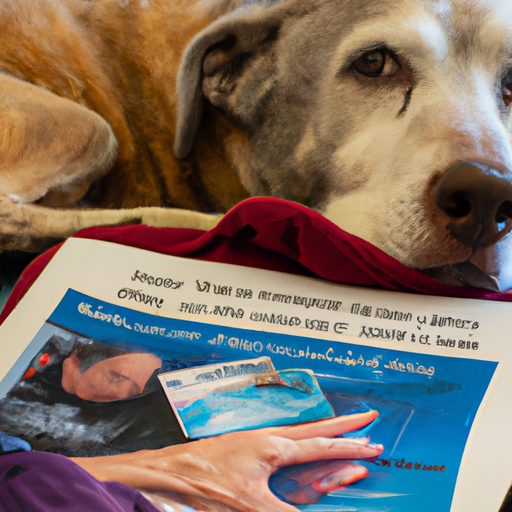Understanding Parvovirus
You might have heard about parvovirus, commonly known as parvo, as a life-threatening disease that often affects puppies. But did you know that older dogs can also contract this deadly virus? Yes, it’s true. Older dogs too can fall prey to this virus, and once infected, they need your immediate care and attention.
Parvovirus is a highly contagious disease that primarily affects a dog’s digestive tract, but it can also damage the heart muscles. It’s spread through direct contact with an infected dog or by indirect contact with contaminated feces.
Recognizing the Symptoms
Recognizing the early signs can make a big difference in your older dog’s chances of survival. Here are the most common symptoms:
- Severe, bloody diarrhea
- Vomiting
- Loss of appetite
- Lethargy
- Fever
- Dehydration
Getting Medical Help
As soon as you notice the symptoms of parvo in your older dog, you must get medical help immediately. Parvo is a deadly disease and every second counts when it comes to treatment.
The vet will conduct thorough tests, and if your dog is diagnosed with parvo, they will recommend hospitalization for intensive care. The treatment usually involves:
- Intravenous fluids to treat dehydration
- Medication to control vomiting and diarrhea
- Antibiotics to fight secondary infections
- Nutritional support to help your dog regain strength
Home Care for Your Dog
Once your dog is stable and out of the hospital, the recovery continues at home. Your vet will provide a detailed home care plan which might include:
- Medication: Ensure your dog takes all prescribed medication. If your dog refuses to take medication orally, ask your vet for injectable alternatives.
- Hydration: Keep your dog hydrated. Provide plenty of clean, fresh water.
- Nutrition: Feed your dog a balanced diet to help them regain strength. Your vet might recommend a special diet for a while.
- Rest: Let your dog rest and recover. Avoid strenuous activities.
- Cleanliness: Clean and disinfect your home thoroughly to kill the virus and prevent reinfection.
Preventing Parvo
Prevention is always better than cure, isn’t it? Parvo is a preventable disease. Here are some preventive measures:
- Vaccinate your dog against parvo.
- Avoid areas where your dog could come into contact with the virus.
- Keep your dog’s living area clean and disinfected.
| Prevention Measure | How Often? |
|---|---|
| Vaccination | As per vet’s recommendation |
| Avoidance | Always |
| Cleanliness | Daily |
Frequently Asked Questions
Can older dogs get parvo?
Yes, older dogs can get parvo if they haven’t been vaccinated or if their immunity has waned.
Is parvo deadly for older dogs?
Yes, parvo is a severe, often deadly disease in dogs of all ages.
Can parvo be prevented?
Yes, parvo can be prevented with proper vaccination and hygiene practices.
How is parvo treated?
Parvo is treated with intensive care, usually involving hospitalization, intravenous fluids, medication, and nutritional support.
Can my dog recover from parvo at home?
Once stabilized, your dog can continue recovery at home under the guidance of a vet.
Remember, you are your dog’s best advocate. Stay informed, stay vigilant, and stay proactive in your older dog’s health. With your love and care, they can fight and recover from parvo.



